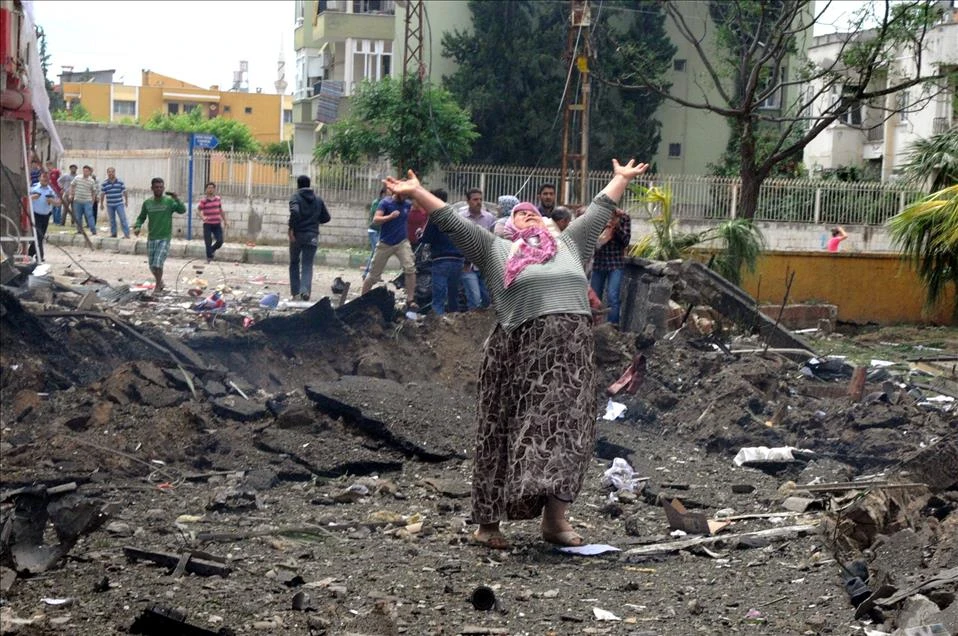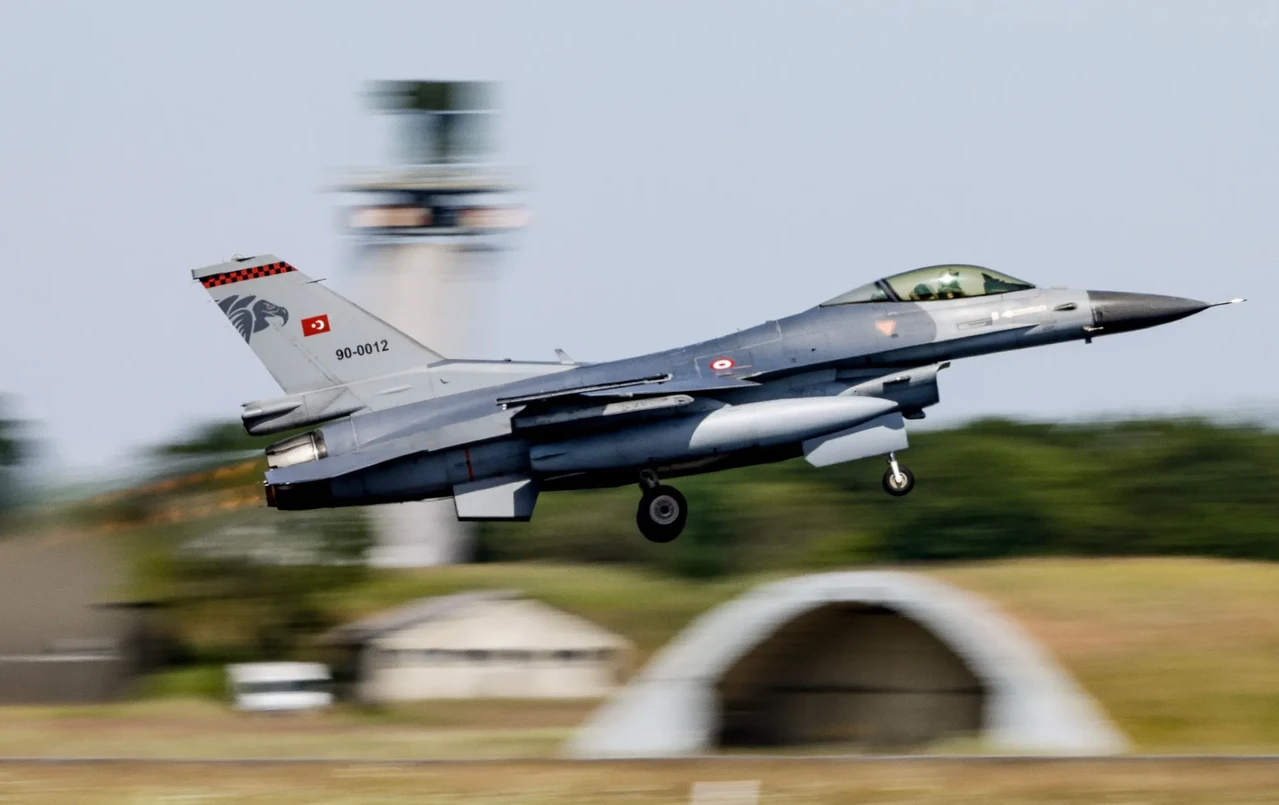Perpetrator from 2013 Reyhanli terrorist attack caught by Turkish intel
 Mourning woman following the Reyhanli terror attack, 2013. (AA)
Mourning woman following the Reyhanli terror attack, 2013. (AA)
Turkish intelligence in cooperation with the Hatay Police Department have caught one the perpetrators of the Reyhanli, Hatay, terror attack which claimed the lives of 53 people on May 11, 2013.
The caught perpetrator was involved with the transferring of explosives from Syria into Türkiye. The car bombing’s that took place in Reyhanli, a town in the Hatay province bordering Syria, registered as the second bloodiest terror attack in the country’s history.
Türkiye’s second-bloodiest terrorist attack in history
The car bombings on May 11, 2013, in Reyhanli, a border town in Hatay province, marked one of the deadliest terror attacks in Türkiye’s history, second only to the 2015 Ankara bombing. The attacks left 53 dead and 146 injured.
Two cars, packed with explosives, were detonated in quick succession, first in front of the Reyhanli Municipality building at 13:37, and three minutes later near the post office. The blasts caused massive destruction, with many civilians among the casualties.
Investigations revealed that the attack was orchestrated by a Syrian pro-Assad group allegedly linked to the Syrian intelligence agency, Al-Mukhabarat.
The suspects, led by Nasır Eskiocak, were accused of carrying out the bombings under orders from Yusuf Nazik, a figure later captured in Syria by Türkiye’s National Intelligence Organization (MIT) in 2018. Nazik confessed to planning the attack and was sentenced to 53 consecutive life terms.
Prior intelligence warnings indicated possible attacks from Syria. The National Intelligence Organization had flagged movements of explosive-laden vehicles from Syria into Türkiye weeks before the bombings.
Security lapses, including non-functional surveillance cameras in Reyhanli and alleged negligence by local authorities, drew significant criticism. In the aftermath, several police and intelligence officials faced charges for failing to act on prior warnings.
The bombings intensified anti-Syrian sentiment among local residents, who blamed Syrian refugees for increasing tensions in the border regions. In response, authorities imposed a temporary media blackout on reporting about the attack, which was later lifted.
Though initial reports implicated the Al-Qaeda-affiliated Al-Nusra Front, the primary responsibility was attributed to the pro-Assad group.
The investigation led to the arrest of 32 suspects, 20 of whom were eventually charged. Some reports also suggested involvement by other groups like ISIS, but these claims were dismissed by officials.
The international community condemned the attacks. U.S. Secretary of State John Kerry expressed solidarity with Türkiye, as did Germany, Azerbaijan, and numerous other nations.
Domestically, then-Prime Minister Recep Tayyip Erdogan and Foreign Minister Ahmet Davutoglu vowed to hold those responsible accountable while urging citizens to resist provocations aimed at derailing Türkiye’s peace and democratization efforts.



